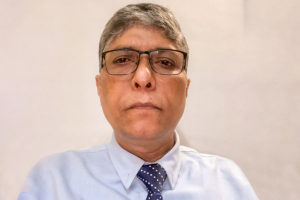India’s growing trade competitiveness amid shifting dynamics
India Business & Trade: What is your view of India’s level of export competitiveness today? How has it actually improved over the past five years?
T. S. Vishwanath: India’s export competitiveness has seen significant strides in recent years, particularly in adhering to international standards and technical regulations. Notably, both industry and the government have collaborated effectively, with initiatives such as the Standards Conclave and Minister Piyush Goyal’s proactive measures playing a pivotal role in this transformation.
Over the past five years, we’ve witnessed a noteworthy increase in the alignment of our products with global standards. This alignment has been a key driver in enhancing our competitiveness in the international market. The concerted efforts to bring more products under technical regulations have been particularly commendable. Minister Piyush Goyal’s push and the introduction of the Standards Conclave have provided the necessary momentum.
India Business & Trade: How do you think the government policies, especially the PLI or other policies, have led to a rise in competitiveness and attracted investments? Any specific suggestions for the PLI scheme?
T. S. Vishwanath: Government policies, especially the Production-Linked Incentive (PLI), have played a significant role in fostering competitiveness and attracting investments. While the PLI wasn’t explicitly designed for exports, its impact on domestic industries has indirectly contributed to enhanced global competitiveness.
The PLI’s success lies in its ability to identify and incentivize new investments, particularly those involving high-tech industries. This not only boosts domestic production but also improves the overall competitiveness of the industries involved. To further strengthen the effectiveness of the PLI scheme, there’s a need for sector-specific refinements in the incentives provided. Tailoring incentives to specific sectors ensures sustained growth and maximizes the scheme’s impact on overall competitiveness.
India Business & Trade: Do you see any worrying trends post Covid on SPS, TBT measures that India should address?
T. S. Vishwanath: Post-Covid, there’s a heightened global awareness of the critical importance of robust Sanitary and Phytosanitary (SPS) and Technical Barriers to Trade (TBT) measures. While the actual number of measures hasn’t seen a substantial increase, there is a growing understanding of their impact on exports.
For Indian companies, the priority should be to ensure compliance with these measures to maintain effective market access. This requires a proactive approach to aligning with evolving international standards. It’s crucial to stay ahead in understanding and adhering to SPS and TBT measures to secure and expand market presence.
India Business & Trade: What is your view on how free trade agreements (FTAs) can help exports, especially with discussions about low tariff barriers?
T.S. Vishwanath: Free Trade Agreements (FTAs) play a pivotal role in facilitating exports, going beyond the reduction of tariff barriers. They create ecosystems that enable companies to better understand target markets, establish linkages, and build value chains. The comprehensive nature of FTAs, incorporating considerations such as sustainability and competition, contributes significantly to improving global positioning.
In the context of discussions about low tariff barriers, FTAs become instrumental in providing a framework for broader collaboration. Companies need to approach FTAs strategically, recognizing the opportunities beyond immediate tariff reductions. By leveraging the full spectrum of benefits within FTAs, businesses can foster sustainable growth and enhance their global competitiveness.
India Business & Trade: How is the nature of trade agreements changing, considering the rise of Comprehensive Economic Partnerships, issues with the WTO, and new groupings like IPEF?
T. S. Vishwanath: The nature of trade agreements is undergoing a transformative shift, marked by the rise of Comprehensive Economic Partnerships, challenges within the WTO, and the emergence of new groupings like IPEF. These changes reflect a broader trend toward more comprehensive and nuanced agreements that transcend traditional trade negotiations.
Factors such as sustainability, competition, and the mobility of professionals are gaining prominence in shaping these agreements. Industry players need to adapt to these nuanced aspects for effective navigation within this evolving trade landscape. Understanding the dynamics of these changes is crucial for businesses to stay ahead and capitalize on emerging opportunities.
India Business & Trade: What factors are driving the surge in interest in the Indian economy and investment opportunities over the past two to three years? How can India accelerate its journey towards being a developed economy by 2047?
T.S. Vishwanath: The surge in interest in the Indian economy over the past two to three years can be attributed to several factors. Firstly, India’s geopolitical stability and commitment to democracy position it as one of the most stable countries for investments. The transparent policymaking and proactive approach to investments further contribute to heightened interest.
The growth of the middle class and increased global market linkages add to India’s appeal as an investment destination. To accelerate its journey towards being a developed economy by 2047, India should focus on fostering transparency in policymaking, promoting stakeholder engagement, and leveraging its open approach to investments. Strengthening linkages with global markets and sustaining efforts to attract investments will be pivotal in realizing this ambitious vision.
T.S. Vishwanath, Co-Founder & Partner, has for over three decades analysed the impact of multilateral and bilateral trade agreements and global economic policies for the industry in India. He engages with different stakeholders including the departments of the Indian government on issues related to bilateral, regional, and multilateral trade and investment agreements.
He assists industry across sectors in studying and interpreting issues of competitiveness including global economic, trade, and regulatory policies. Vishwanath is a Founding Member, Past President, and Director General of the Public Affairs Forum of India (PAFI). Vishwanath is also Principal Advisor at ASL-Legal, a law firm focused on trade policy issues since 2009.
From 1999 to 2009 he worked with the CII. Prior to that, Vishwanath was an economic journalist from the mid-1980s covering trade and economic policy issues for some leading Indian economic dailies – The Economic Times, Financial Express, and the Hindu Business Line.














Leave a comment